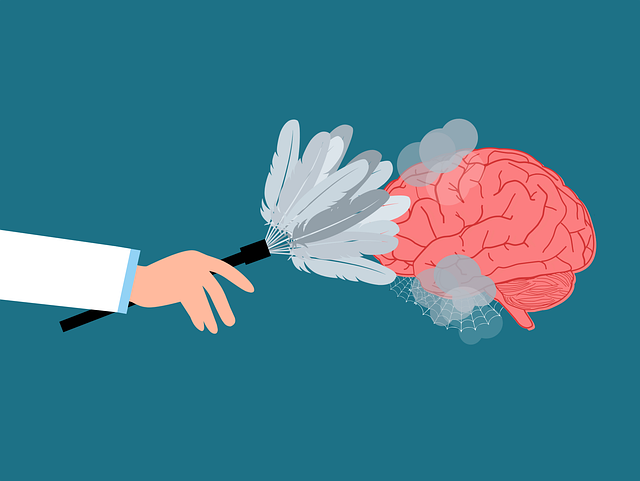Englewood Alcohol Abuse Therapy offers a comprehensive approach to stress management, addressing its complex nature through education, advocacy, and cultural competency training. They provide holistic care, combining counseling with empathy-building strategies to create supportive relationships. Stress is recognized as a significant mental health issue, impacting anxiety and depression; effective management techniques include mindfulness meditation and physical activities. Public awareness campaigns play a vital role in reducing stigma and encouraging early intervention. Englewood emphasizes the development of healthy habits like regular exercise and adequate sleep to mitigate stress triggers.
Stress management is a vital skill in today’s fast-paced world. This comprehensive guide explores effective strategies to navigate life’s challenges, focusing on both mental and physical well-being. We delve into the science behind stress, its causes, and profound impact on our lives.
Discover how Englewood Alcohol Abuse Therapy offers a holistic approach, addressing underlying issues for lasting change. Learn powerful techniques from mindfulness to exercise, and gain practical tips for implementing healthy habits that reduce stress and improve overall resilience.
- Understanding Stress: Causes and Impact
- Englewood Alcohol Abuse Therapy: A Holistic Approach
- Effective Stress Management Techniques
- Implementing and Maintaining Healthy Habits
Understanding Stress: Causes and Impact

Stress is a complex physiological and psychological response to various internal or external factors, often triggered by demands that exceed our perceived ability to cope. It can stem from numerous sources, such as work pressure, financial worries, relationship issues, or even positive life changes. At Englewood Alcohol Abuse Therapy, we recognize that understanding stress involves recognizing its multifaceted nature and the unique ways it manifests in each individual.
The impact of chronic stress on mental health is significant, leading to increased risk of anxiety disorders, depression, and other psychological conditions. It can also manifest physically, contributing to issues like high blood pressure, weakened immune system, and sleep disturbances. In light of this, Mental Health Education Programs Design focus on raising awareness about stress management techniques as a proactive approach to well-being. Additionally, Mental Health Policy Analysis and Advocacy plays a crucial role in ensuring accessible resources and support systems for individuals navigating stress-related challenges. Healthcare Provider Cultural Competency Training is essential, too, as it equips professionals with the skills to identify and address stress within diverse cultural contexts.
Englewood Alcohol Abuse Therapy: A Holistic Approach

Englewood Alcohol Abuse Therapy takes a holistic approach to stress management and recovery, recognizing that healing is deeply connected to various aspects of an individual’s life. This therapy goes beyond traditional counseling by incorporating Empathy Building Strategies that foster strong therapeutic relationships. By cultivating understanding and compassion, therapists create a safe space for clients to explore their emotions and triggers without judgment.
In addition, Englewood focuses on Public Awareness Campaigns Development to reduce stigma and promote early intervention. Effective communication strategies are at the core of these campaigns, ensuring clear and accessible information reaches those struggling with alcohol abuse. Through community engagement and education, they aim to create a supportive environment that encourages individuals to seek help and implement healthy stress management techniques for long-term recovery.
Effective Stress Management Techniques

Effective stress management techniques are essential for maintaining mental and physical well-being, especially in today’s fast-paced world. One proven method is mindfulness meditation, which helps individuals focus on the present moment, reducing anxiety and promoting relaxation. Regular practice can significantly enhance one’s ability to handle stressful situations, as demonstrated by various studies, including those conducted at Englewood Alcohol Abuse Therapy.
Additionally, engaging in physical activities like yoga or aerobic exercises releases endorphins, often referred to as ‘feel-good’ hormones, which act as natural painkillers and mood elevators. These activities also serve as valuable outlets for frustration and tension accumulation, making them integral components of stress management workshops organized by leading mental health institutions. Incorporating such practices into daily routines can be a game-changer in managing stress levels, and even simple self-esteem improvement techniques can significantly contribute to overall well-being. Moreover, public awareness campaigns development around these topics plays a crucial role in educating communities about the importance of stress management.
Implementing and Maintaining Healthy Habits

Incorporating and sustaining healthy habits is a cornerstone of effective stress management. This process begins with identifying personal triggers and developing tailored strategies to mitigate their impact. Simple yet powerful practices like regular exercise, mindfulness meditation, and adequate sleep can significantly reduce stress levels. For instance, engaging in physical activity releases endorphins, which act as natural mood lifters, while mindfulness practices help individuals stay grounded in the present moment, reducing worries about the past or future.
At Englewood Alcohol Abuse Therapy, we recognize that fostering healthy habits requires consistent effort and support. Our professionals emphasize the importance of Self-Care Routine Development for Better Mental Health, encouraging clients to prioritize self-care activities that resonate with them. We also understand that public awareness campaigns play a vital role in promoting these practices on a larger scale, addressing stress management as a crucial component of overall well-being. Additionally, conducting Risk Assessment for Mental Health Professionals helps identify potential risks and ensures the delivery of high-quality care.
Stress management is a vital skill for maintaining mental and physical well-being. Through understanding stress triggers and impacts, individuals can empower themselves with effective techniques like those offered by Englewood Alcohol Abuse Therapy’s holistic approach. By adopting healthy habits and implementing these strategies, one can navigate life’s challenges more resiliently, enhancing overall quality of life. Remember, managing stress is a journey; consistency and patience are key to reaping long-lasting benefits.










